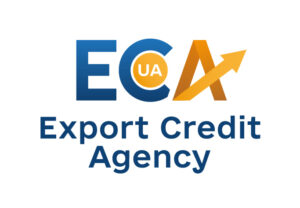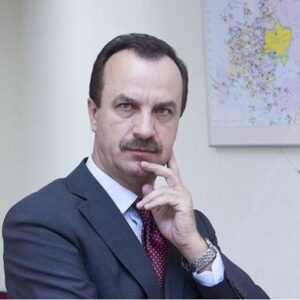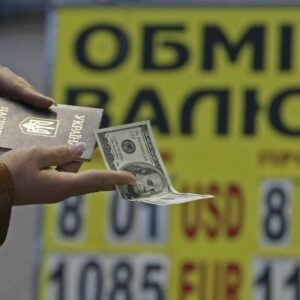
In January-March 2025, the Export Credit Agency (ECA) supported the exports of Ukrainian companies worth UAH 3.15 billion, with 20 exporters benefiting from the agency’s insurance coverage, the press service of the Ministry of Economy reports.
“In the first quarter, ECA insured exports worth more than UAH 3.1 billion. These are finished products with added value: furniture, food, packaging materials, wood and plastic products. Thanks to this support, 20 companies were able to secure their contracts and attract almost UAH 150 million in bank loans,” Deputy Minister of Economy Andriy Teliupa said in a press release.
He emphasized that this proves that state support tools are working: businesses receive protection, resources for expansion and confidently enter new markets.
The Ministry of Economy noted that Ukrainian companies will export furniture, food, paper, wood, and plastics to Poland, France, Germany, Bulgaria, Denmark, Hungary, the Netherlands, and other countries.
Thanks to ECA insurance, the business received bank loans worth almost UAH 150 million.
Raiffeisen Bank supported the exports of its ECA clients by UAH 1.3 billion, Creditwest Bank by UAH 1.26 billion, and Oschadbank by UAH 323 million.
Companies from Khmelnytsky region took advantage of the opportunity to insure export contracts most actively, with a total of UAH 1.3 billion, Volyn region – UAH 1.12 billion, and Zaporizhzhya region – UAH 230 million.
The Export Credit Agency of Ukraine (ECA) is a government agency that supports non-resource exports by insuring the risks of enterprises and banks. In particular, the agency insures foreign economic contracts, export credits, bank guarantees, and has started insuring investment credits against war risks.

As part of the deregulation reform, the Ministry of Economy has amended the order “On the Procedure for Licensing the Export of Goods,” according to which Ukrainian exporters will receive licenses in electronic form, the ministry’s press service reports.
“Digitalization of services provided by the state to business is one of the key components of deregulation. We are currently fully transferring the process of obtaining licenses by exporters to an electronic format. And we are working on a similar simplification of the procedure for importers. In addition, we are simplifying the process of obtaining permits by reducing the number of documents required to apply for a license,” said First Vice Prime Minister and Minister of Economy Yulia Svyrydenko.
According to the amended order, entrepreneurs will be able to submit documents and obtain licenses in electronic form, while they can also submit documents in paper form if they wish.
In addition, the list of documents required to obtain a license has been shortened. The amendments to the Order also update the license application form, the license form, instructions for filling them out, and the regulations on the licensing procedure.
In order to obtain licenses for the export of goods from Ukraine, entrepreneurs who have chosen the electronic form of submitting documents should go to the section “Foreign Economic Activity” on the Unified State Web Portal of Electronic Services at https://my.gov.ua/info/service/2817 /details.
The entrepreneur must submit a package of required documents in his/her electronic cabinet. After they are reviewed within the established timeframe and if a positive decision is made, the license will appear in the applicant’s account in electronic form.
If a person submits documents in paper form and wants to receive a response by e-mail, then at the stage of submitting documents, they must provide the recipient’s mail address and indicate that they want to receive a response in this way.
The Ministry of Economy noted that during martial law, the issuance of licenses for the export and import of goods is free of charge. Therefore, the letter of application for a license does not require a guarantee of payment of the state fee for its issuance and an upload of a package of documents.
The Interagency Working Group on Accelerated Review of State Regulatory Instruments for Business has already reviewed more than 1,300 regulatory instruments for business, of which 456 are recommended to be canceled and 584 to be simplified, the Ministry reminded.
Source: https://interfax.com.ua/

VESCO, one of the world’s leading producers and exporters of white plastic clay, has acquired quarries in Spain, Poland, Romania, Serbia and Bosnia in addition to its Ukrainian assets to maintain its competitive position in the market, said Andriy Gorokhov, CEO of umgi, an investment company whose assets include VESCO.
“We have already made investments, in particular in the extraction of minerals that are in demand for ceramics production, in five countries: … Spain is the key one … and now we have added Poland, Romania, Serbia and Bosnia and are looking at Turkey,” he said at a recent Ukrainian-Swiss business forum held in Lugano.
Gorokhov reminded that the asset in Ukraine produces a product of unique quality, and before the war it was No. 2 in its niche and was valued at more than $700 million.
According to the umgi CEO, VESCO had a strategy to expand, in particular abroad, and UMGI helps the team with the strategy and its implementation.
Gorokhov explained that the war accelerated the process of entering foreign markets, as Ukrainian raw materials became more expensive due to logistics, so it became necessary to have raw material production facilities in other countries to maintain competitiveness and existing customers.
He clarified that in addition to quarries, VESCO has production facilities in two key locations: Port Ravenna in Italy and Port Castellon in Spain, where the team mixes raw materials and receives the final product, guaranteeing timely delivery to the client.
“Thus, as a company that has extensive experience, primarily in the field of investment in Ukraine, we are trying to combine business models in the right way, where Ukraine always has a place and there is something that could strengthen these business models through investment abroad,” said umgi’s CEO.
According to him, clay is just an example of this approach, and creating something bigger and more efficient benefits both customers and investors and increases the value of the asset.
In general, representing the investment company, which changed its name from UMG Investments to umgi in March this year, he noted that it has been in the mining business for 17 years, has invested more than $100 million in it and has achieved good results.
“The return rate is five to one for our investors. For the mining business, this is more than a good result, (which) proves that it is possible to make money in this area in Ukraine. You just have to know what you’re doing and be a professional player, which is the standard for the whole world,” Gorokhov emphasized.
According to him, mining assets are one of the three in umgi’s portfolio, but they are significant: before the war, their value exceeded $800 million.
“When the war broke out, we continued to look for projects, and now we have about 10 projects that we are considering in Ukraine, plus we have started developing additional projects in Europe,” Gorokhov added.
According to him, umgi is now offering European investors to invest in Ukraine on a partnership basis.
The head of the investment company noted that over 17 years of work in Ukraine, the situation with laws and regulations and market transparency has improved significantly, an investment map has been created, access to databases has been provided, and liberalization is underway, in particular, in 2023, with the adoption of legislation, access to the purchase of licenses was greatly facilitated. Gorokhov added that, for example, in Ukraine, obtaining a license is easier than in Romania or Poland, although it can take up to two years to prepare a field for operations.
At the same time, there are still issues with connecting to the energy and transportation infrastructure, Gorokhov admitted.
According to the website, VESCO Limited is a company that is a 100% owner of shares in the VESCO clay mining group.
VESCO is a portfolio company of umgi, which is part of Rinat Akhmetov’s SCM, the largest investment group in Ukraine.
VESCO’s Ukrainian assets include VESCO PrJSC, Druzhkovka Ore Mining, Vogneftebrud and Chasovoyarsk Refractory Plant.
According to the data on the site, the production capacity of VESCO exceeds 3 million tons of clay per year, the products are delivered to more than 25 countries, more than 60 types of products are made for the companies of ceramic and refractory industries. It is noted that more than 900 thousand tons of products are kept in warehouses to ensure stability of supply.
At the end of August 2022 VESCO announced that it had restored the delivery of products to Spain, Italy and Turkey. It was pointed out that after the start of full-scale war on the part of Russia, the group suspended the production for several months, evacuating people and some equipment, but the accumulated stocks were sufficient. At that time, the group had reached a shipment volume of 100,000 tons per month.
As umgi pointed out in March of this year, in addition to the brand, the corporate identity was also redesigned.
“Since its founding, umgi has transformed from a non-core asset management company that was part of an industrial conglomerate to a captive private equity firm with a diversified portfolio of assets located first only in Ukraine and now also in the EU and Turkey,” the release noted.
As of March this year, umgi has a track record of investing in start-ups and developing operating companies in the green economy, industrial services and natural resources sectors. Umgi’s assets are located in Ukraine, Spain, Romania, Poland, Italy and Turkey and were worth more than $1 billion as of January 1, 2022.

The Verkhovna Rada of Ukraine adopted as a basis the “agricultural” bill #8166-d, which introduces the regime of export security and regulation of the balance of payments of Ukraine for exports of agricultural products during martial law, which allows to ensure the full and timely receipt of foreign currency proceeds.
MP Yaroslav Zheleznyak (Golos faction) said in a Telegram channel that draft law No. 8166-d “On Amendments to the Customs Code of Ukraine and other laws of Ukraine on the introduction of special export procedures during martial law, state of emergency” was adopted as a whole at Thursday’s meeting by 231 votes (with the minimum required 226).
According to the explanatory note to the document, the bill allows the export of goods subject to the export security regime exclusively to legal entities – value added tax payers, whose registration is not suspended. In addition, in order to export goods for which the export security regime is applied, they will need to have a positive history in terms of the return of foreign currency proceeds for the previous six months and the absence of violations of currency legislation.
It is specified that if the exporter does not have a positive history or if its volume of export transactions considerably exceeds the previous six months, a legal entity must register the relevant tax invoices in the Unified Register of tax invoices.
“In such case the exporter will receive the right for budget refund for operations on export of goods outside the customs territory of Ukraine, in relation to which the export security regime is applied, only if the bank of Ukraine, which services such taxpayer, completes currency supervision over the resident’s compliance with the deadline for settlements of the respective operation on export of goods,” the explanatory note to the document specifies.
According to the author of the bill, such measures are caused by a significant debt of non-residents to the Ukrainian subjects of foreign economic activity, which amounted to $7.37 billion as of January 1, 2022, of which $5.08 billion was owed on export operations. At that, during nine months of 2022, the debt increased to $7.62 billion, and the debt on export operations increased to $5.45 billion.
“The adoption of the bill will facilitate the receipt of foreign currency proceeds and will prevent unjustified capital flight from the state by creating safeguards to reduce the cases of purchase of agricultural products for cash and the subsequent export of these products without the return of foreign currency proceeds from such transactions in Ukraine,” the explanatory note to the bill states.
Earlier, the Ministry of Agrarian Policy and Food of Ukraine specified that the draft law No. 81660-d agreed with the agrarian sector was proposed instead of the draft law No. 8166 the provisions of which were strongly criticized by agricultural associations. The amended document allows farmers to use the tax credit as collateral for the return of foreign exchange earnings and not to use working capital, as it was stipulated in the basic version of the bill.
According to the ministry, the document allows legal agribusiness to export agricultural products without any additional regulation within the established limit. The monthly amount of this export limit is calculated as double the amount of the average monthly volume of foreign exchange earnings returned by a legal entity, calculated for the previous six months. Within the limit, exports can be made according to the current procedure, without any additional legislative regulation.
In the event that the company’s export needs exceed the calculated limit, a tax invoice at the rate of 14% must be registered for this overtime amount. After the foreign currency proceeds are returned, it is possible to adjust such an invoice at the tax rate from 14% to 0% and receive a VAT refund on it.
“In fact, this makes it possible to use a tax credit as collateral for the return of foreign currency proceeds, and not just cash in hand, as it was envisaged in the basic version of the bill,” the Ministry of Agrarian Policy emphasized in the message.

Ukraine and Croatia have signed a Memorandum of Cooperation between the Council of Exporters and Investors, Ukrainian Ambassador to Croatia Vasyl Kyrylych has said.
“Today we have signed a Memorandum of Cooperation between the Council of Exporters and Investors under the Ministry of Foreign Affairs of Ukraine and the Croatian Economic Chamber,” Kyrylych wrote on his Twitter on Thursday evening.
The next stage of the countries, he said, is expected to be a series of joint projects.

Ukrainian exporters of Ukrainian exchange-traded commodities in 2021 have no reason to complain about the external conditions of business due to favorable prices for these commodities and partly excellent harvest, so they should focus on adapting their business to possible future problems, a member of the board of bank Pivdenny (Odesa) Oleksandr Matiushenko has said.
“If we are talking about 2021 and a good harvest on the one hand, and on the other hand, a gorgeous price for us in the foreign market, then I think that this year absolutely all exporters associated with export commodities will not complain that they are not satisfied with something, because today we are witnessing a fairly stable hryvnia exchange rate, the consequences of which are good positions of our export and raw material base,” he said at the CFO Forum in Kyiv on Wednesday.
Matiushenko said that Ukrainian business is successfully coping with the situation that has developed in connection with a sharp rise in prices in the gas or coal market, and its representatives should adapt to possible difficulties in the future, such as problems arising under the terms of concluded contracts or reducing their internal costs.
The banker also said that he considers the hryvnia exchange rate this year adequate with the expected policy of the National Bank of Ukraine.